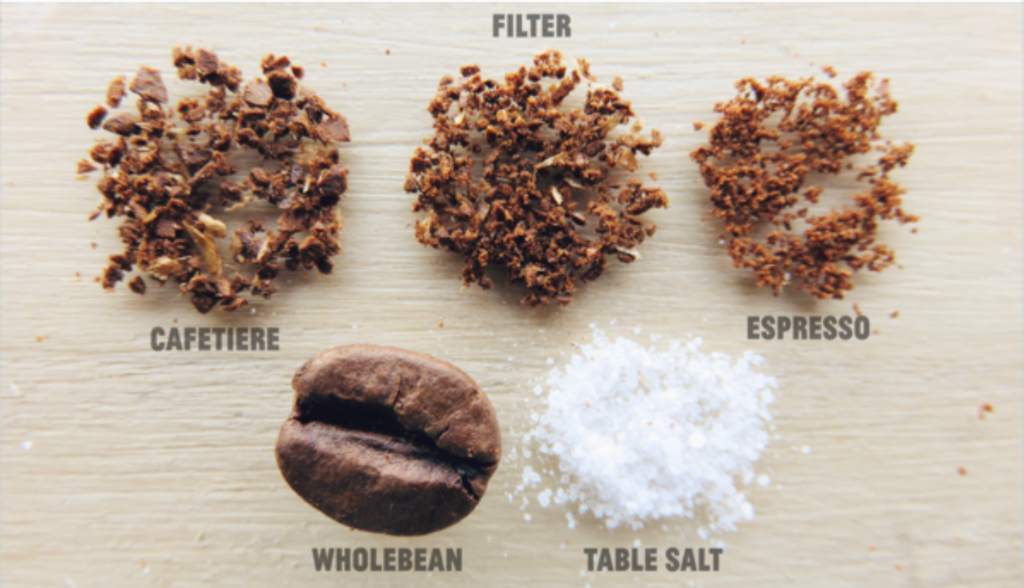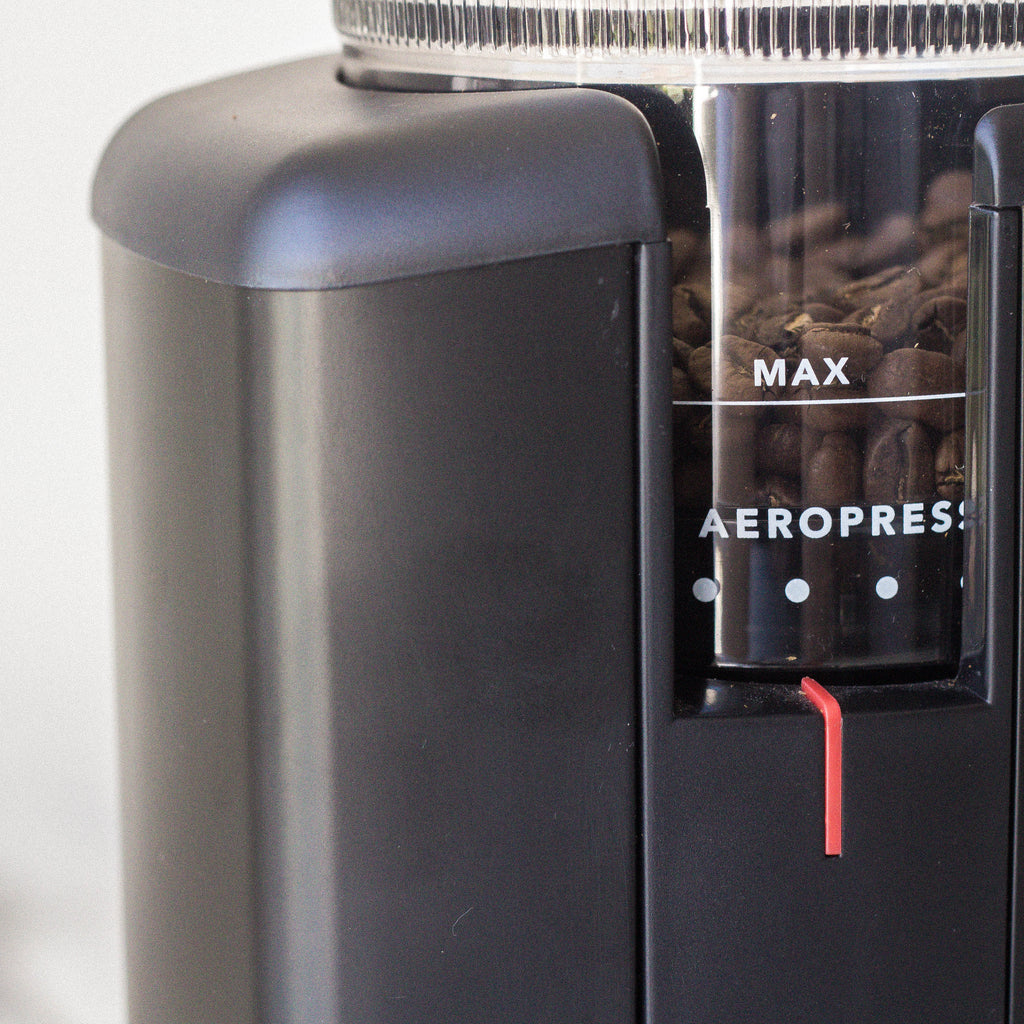Have you ever been disappointed with the taste of the coffees you brew at home?
Are you struggling to deliver great tasting, balanced coffee in the coffee gadgets you’ve bought?
Then we hope this blog will help you achieve the perfect coffee grind.
What are the essentials of good brewing?
Here are 5 essential elements of good coffee brewing that will help produce balanced, flavourful yumminess:
- Correct coffee to water ratio. We aim for 60-65grams of coffee/litre water. Investing is some good weighing scales is always a good idea if you will be grinding coffee beans at home. After that, it's all about adjusting to your taste!
- Coffee grind that matches the brewing type – see below. This is essential to great coffee brewing and mastery of this will bring you great joy!
- Proper operation of the brewing method, including: Time of contact of coffee grounds and water & temperature of water. Don’t use boiling water We recommend water just off the boil at around 93 degrees.
- Using the appropriate brewing method for the coffee. Take an espresso blends for example, they really won’t taste good in a cafetiere.
- Good quality water – see our Q Grader Tips: Water, here.
Why grind?
Surface area plays a big part in this. Imagine you're trying to brew a whole coffee bean; the total surface area in contact with water would be around 8sq. cm, which would result in a very weak and time consuming brew. Now imagine grinding the coffee to a fine grind, this increases the coffee particles from 1 to 4000, meaning the surface area also increases 21 times, resulting in a stronger brew. But be careful, one grind does not fit all! (see extraction below).
Think Fresh
Why are freshly ground coffee beans important?
Coffee aroma and taste begins to degrade soon after roasting and a large amount of CO2 is also released, up to 10 litres of CO2 per kilo of coffee! The trick is to keep your coffee away from air, heat and moisture. You also need allow the CO2 to dissipate, this is why we use bags with a one way valve in them. Research has shown that once roasted, coffee will begin to degrade after a few months if stored correctly, but after grinding this reduces to a few weeks. Fragrance – the dry aroma of coffee degrades even faster, within minutes, so grinding your coffee just before brewing will produce a better aroma & taste.
We offer some fantastic coffee selection packs - see below!
(Store your coffee in an airtight container away from light, heat and moisture – the coffee bag it comes in is, ideal tightly wound up after opening and sealed with a rubber band around it.)

Matching Grind to Brewing Method – The Right Grind!
For optimum extraction of the coffee to occur, the grind must be matched to the coffee maker being used! If the grind size is not appropriate, the coffee will taste poor! As a general rule, longer brewing times should be paired with larger or coarse particle sizes e.g. cafetiere, whereas shorter brewing times should be paired with smaller or finer grind sizes e.g. espresso. For example, if you make a cafetiere with espresso grind coffee it will over extract and taste bitter. See the photo above for a visual aid to grind sizes.
Extraction – oh no!
What is extraction?
There is a mountain of scientific research behind the principles of coffee brewing dating back to the 50’s and we will cover extraction in more detail in another blog, but in essence extraction is delivering a balanced cup by ensuring the 5 essential elements of good coffee brewing are followed.
What’s the difference? The quality of your grinder will make a big difference – a grinder that delivers coffee grounds of similar particle size will provide a superior taste! At the bottom end of the scale you have flat blade grinders – the type used to grind spices. Please avoid these if possible, they smash the beans, add heat and deliver coffee particles from dust to fragments.
Money invested in a good grinder is well spent – Conical Burr or Flat Burr grinders are the best and preferably ones that run at a low RPM to avoid heating the beans whilst grinding.
Man or MachineHand or electric grinder - pros/cons – both are good, I prefer the manual method as you get a better grinder for your money and you can grind the beans gently, but it does take time and effort and there are some excellent electrical grinders out there.





